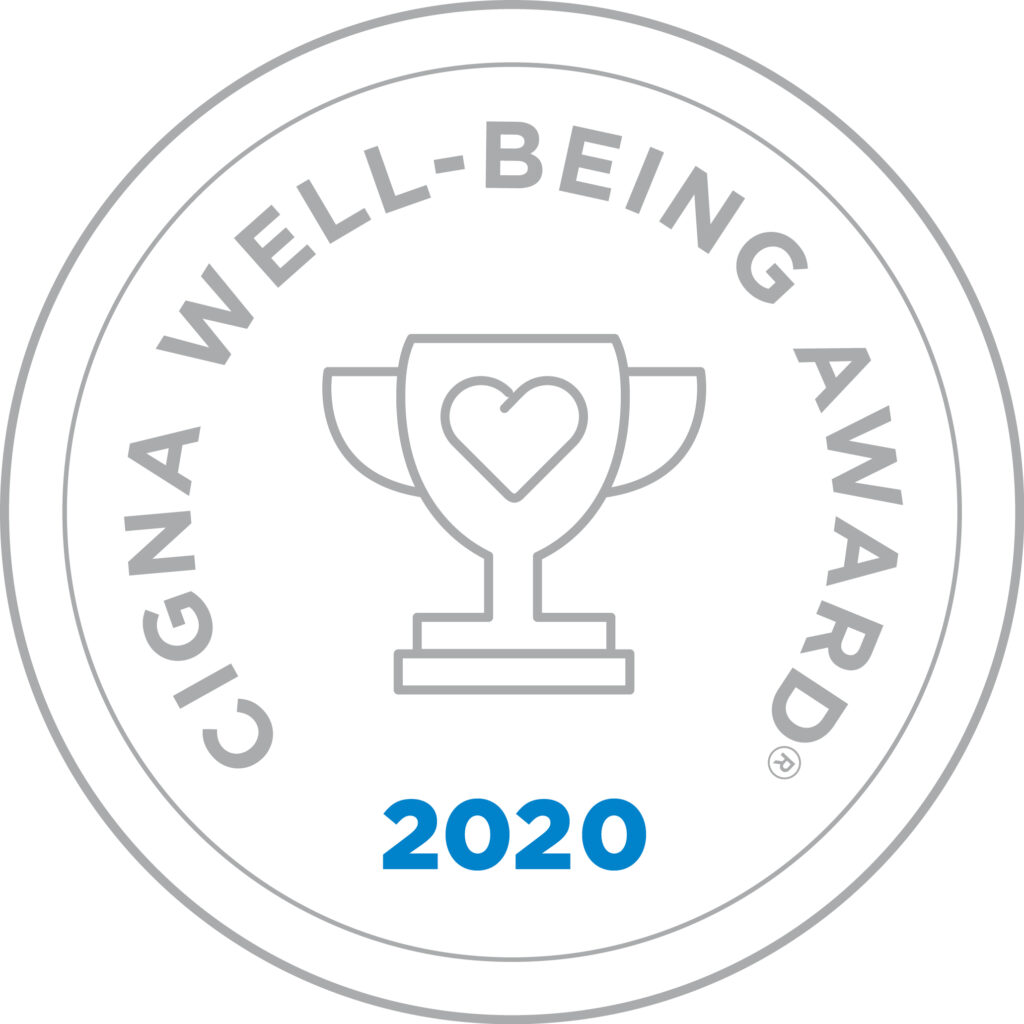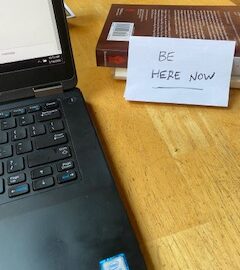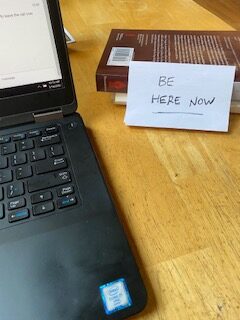For many of us, 2020 has been one of, if not the most challenging years of our lives. Covid-19 is putting tremendous pressure on us all, especially on parents with children at home. More and more parents are reporting high levels of stress, anxiety, and feelings of being on edge since the pandemic started and this distress has a ripple effect on children, families, and relationships. Being proactive and taking action is critical during times like these to sustain our health and well-being.
Continue reading Perseverance in the face of challengeAll posts by Rebecca Schubert
Flu shot season is upon us
It’s likely that flu viruses and the virus that causes COVID-19 will both spread this fall and winter. Healthcare systems could be overwhelmed treating both patients with flu and patients with COVID-19. This means getting a flu vaccine during 2020-2021 is more important than ever. While getting a flu vaccine will not protect against COVID-19, there are many important benefits, such as:
- Flu vaccines have been shown to reduce the risk of flu illness, hospitalization, and death.
- Getting a flu vaccine can also save healthcare resources for the care of patients with COVID-19.
The CDC recommends getting vaccinated before flu viruses begin spreading in your community, since it takes about two weeks after vaccination for antibodies to develop in the body and provide protection against flu. Most of the time flu activity peaks between December and February so getting vaccinated in October and into early November will offer the greatest protection.
You can get your vaccine at your primary care practice and at many local pharmacies. For a list of Cigna in-network pharmacies click here. BCBS VT members…to find an in-network pharmacy where you may be able to get a flu vaccine, click here. MVP members….click here. Staying in network for your vaccine will ensure that your vaccine is covered, and you don’t incur any unexpected costs. Most pharmacies offer flu vaccine on a walk-in basis, but it’s always a good idea to call ahead to make sure they have vaccine available and a staff person to administer the vaccine when you arrive.
This year it’s more important than ever for all of us to take action to keep ourselves and those around us safe and healthy and getting vaccinated is one of the best ways we can do that.
Congratulations are in order!
Congratulations to Champlain College and Norwich University for being recognized with a 2020 Cigna Well-being Award. Champlain College is being awarded with the “Outstanding Culture of Well-Being” and Norwich University will be receiving “Honorable Culture of Well-Being”. These awards recognize organizations for demonstrating a strong commitment to improving the health and well-being of their employees and for creating and enhancing a culture of well-being. Applicants are evaluated on five key components of their well-being: Leadership, foundations, program implementation, tools, and health promotion participation data. All applications are reviewed and judged by an internal, multi-departmental review committee from Cigna. This is a wonderful achievement and one that the leadership, faculty and staff of Champlain and Norwich can be proud of. Congratulations to everyone who made this possible.

Seasons change and so can we
Fall has arrived and with that means cooler temperatures, shorter days, and for many of us, more responsibilities and demands on our time. While many of us may have been in our self-care grooves this summer, we often have a hard time maintaining these routines as we transition into fall and winter. As a health coach, I so often hear people say, “I fell off the wagon” or “I don’t know what happened. I was doing so good.” Well, I might be able to shed some light on what happened. The environment changed and instead of adapting we dug our heels in and tried to maintain the same routines under completely different circumstances. If you’ve been on the “on the wagon/off the wagon” in the past, I’ve got some strategies and new ways of thinking that just might help you drive the wagon exactly where you want it to go this fall and winter.
Continue reading Seasons change and so can weEnhancing your financial well-being in uncertain times
Ninety percent of Americans recognize the impact of money and their finances on their well-being. Many of us are feeling our stress level rise with the uncertainty that Covid has brought with it. We may be experiencing a loss of family income, increased expenses due to unexpected childcare needs or we may have seen our retirement savings decrease. Whatever the cause, money woes can be overwhelming but there are things we can do to take control of the situation. Check out this resource guide for coping with financial uncertainty developed by Northwestern. In the resource guide, you will learn about how your Employee Assistance Program (EAP) can help, tips for coping with stress, dealing with creditors and how to address mortgage issues. To find out how to access your EAP, refer to your school’s Well-being Resource Guide.
Healthcare consumerism…not the dirty word you might think it to be
Consumerism, the word makes me cringe. As a minimalist, the idea of too much stuff makes me anxious. As a lover of our environment, the idea sounds irresponsible and as someone who values stability and personal responsibility, the idea of consumerism sounds like it would fiscally irresponsible for me. For many of us the idea of consumerism probably sparks some discomfort or negativity but in the case of healthcare, consumerism is a good thing.
Healthcare consumerism means people “proactively using trustworthy, relevant information and appropriate technology to make better-informed decisions about their health care options in the broadest sense, both within and outside the clinical setting” (Carman, Lawrence & Siegel, 2019). Being proactive and informed….now that sounds empowering. That is something I can get behind. But how can we become better consumers of our healthcare?
There are three, primary actions we can take:
- Make the most of your medical appointments by being prepared. Check out these tips from the Dartmouth Center for Shared Decision Making.
- Take personal responsibility for your self-care behaviors: Our health is largely determined by the seemingly small behaviors we engage in every day. In Vermont, three behaviors (poor diet, lack of physical activity and tobacco use) lead to four diseases (type II diabetes, cancer, heart disease & stroke and lung disease) that are responsible for 50% of all deaths.
- Take advantage of tools to support your decision making. For our Cigna members, check out this video to learn about the cost comparison/cost containment tools available to help you make the most informed and fiscally sound decisions.
Being better consumers of healthcare, like anything, comes down to commitment and practice. Choose to be prepared, to take responsibility and to use the tools available to you to help you be successful. You have got nothing to lose and everything to gain.

Gather up your teammates and get ready to race around the Great Western Loop
Grab your coworkers (and partner/spouse/family members) and work together to be the first team to complete the Great Western Loop. This 6,875 mile trail links together five long-distance hiking trails: the Pacific Crest Trail, the Pacific Northwest Trail, the Continental Divide Trail, the Grand Enchantment Trail, and the Arizona Trail. It features some of the most remote, beautiful, hostile, and pristine environments in the United States, including the Mojave Desert, the Sonoran Desert, 12 National Parks, and 75 wilderness areas.
Each participant on your team will be able to bike, hike, swim, paddle or engage in a host of other activities which will be converted to steps to move your team toward the finish line. Each day participants will “check in” to the DIEMlife app and manually enter their type and duration of activity. The app will automatically convert the activity to steps and move the individual and team along the leaderboard. The team who completes the trail first will win the designation of “The Great Gallivanters”. At the conclusion of the challenge all participants will be entered into a drawing to win one of ten prizes including Garmin Forerunner watches and $100 gift cards. All participants will have an equal opportunity to win a prize.
The challenge will begin on Monday, July 20th and will start and end at the Grand Canyon. The challenge will conclude when the first team arrives back at the Grand Canyon.
Registration is simple.
1) Click the link below for your school to be directed to your team (spouses/family members are welcome to join).
2) Once there you’ll be directed to either create an account or log in to your existing account.
2) Watch the short (2 minute) video which will give you all the information you need about how to track your activity and how to view your individual and team’s progress.
-To join the Champlain team: Go Here
-To join the GMHEC team: Go Here
-To join the Middlebury team: Go Here
-To join the Norwich team: Go Here
-To join the St. Michael’s team: Go Here
4) Download the DIEMlife app to start tracking your activities/racing *activities cannot be logged until Monday…no head starts 🙂
-iOS: App store link
-Android: Play store link
5) Have fun!
I hope you’ll join us.

Fire and the power of gratitude
5:30 am on a hot, hazy summer July morning. I sit down on my favorite spot on the couch with a cup of coffee and look out the window. I take a deep breath. I love this time of day. It always feels so peaceful…like the whole world is still asleep and I have it all to myself. The clouds are low and I can almost see the humidity in the air. It looks like the house in the clouds…like what you’d see if you were looking out the window on an airplane when you’re flying through the clouds. I can see the clouds rolling over the roof of the breezeway. I’ve never seen the clouds move like that before, move over the roof like that. In that instant I’m thinking how beautiful it looks and at same time, how odd. And then for some reason I get the sense that something isn’t right. I put my coffee down on the coffee table and step outside….and I see it…and I smell it…smoke billowing out of the attic above our garage. It wasn’t the clouds I was seeing rolling over the roof. It was smoke. I’m strangely calm as I step back into the house and yell to my husband, “The attic is on fire!”
Continue reading Fire and the power of gratitudeEAP…One of the most misunderstood resources you might be missing out on
Employee Assistance Programs, or EAPs, have been around since the 1950s and to this day remain one of the most underutilized resources provided by employers. EAPs began out of a need to address alcohol related issues in the workplace but today’s EAP programs are so much more. Today, EAPs address not only substance use and abuse but also behavioral and mental health, wellness promotion, and life event management. EAP services are delivered at no cost to employees and all household members by via phone, video-based counseling, online chatting, email or face-to-face. Services are completely confidential which means that no one, not your supervisor, manager or human resources team will know that you have accessed the service.
Continue reading EAP…One of the most misunderstood resources you might be missing out on
Be here now
Have you ever felt distracted or found it difficult to stay focused on the task at hand? Do you start a task and then find yourself starting something else halfway through? Have you told yourself you’re going to do this or that and then forget what it was you were going to do? I definitely have and this week those sort of behaviors and that mindlessness seem to be happening more often. My brain has been hijacked by the monkey mind. In Buddhism, the monkey mind describes a scattered state, a mind that jumps from one thing to the next just like a monkey jumping from tree to tree. It’s a feeling of being unsettled and ill at ease and if you’ve been there, you know it’s not a pleasant place to be.
While this has been happening I’ve also been getting messages from the universe about needing to slow down, to pause and to be present. It’s funny how that happens. The universe has a way of sending you the exact messages you need to hear. Taming our monkey mind, like any other skill, is something we can get better at through regular practice. In her book, “No Time to Lose”, author Pema Chodron says that “mindfulness tethers the mind to the present” (p.105) and that “all anxiety, fear and suffering disappear when we tame our mind” (p. 106). Practicing mindfulness is the cure for the monkey mind.
There is a lot of misconception about how to practice mindfulness is and what it actually is. Jon Kabat Zinn, professor of medicine and founder of Mindfulness Based Stress Reduction (MBSR) describes mindfulness as paying attention on purpose without judgement. That’s it….mindfulness just means paying attention and we can do it anywhere, anytime. We can practice mindful walking, mindful eating, mindful washing dishes, mindful teeth brushing and mindful breathing. We don’t just have to sit on the floor with our legs crossed for hours on end to reap the benefits. All we need to do when we find our mind wandering is to stop, take a pause and come back to the present moment. The more our mind wanders, the more opportunity we have to practice coming back and it is this practice of coming back that enables us to be more present and focused. Over time we find that we can sustain our focus for longer periods of time. It is in this present state that we can truly experience and enjoy life. The only time our lives are happening is in this moment.
To help myself practice coming back to the present moment I made a little sign as a reminder to “Be here now” and I’ve put it right next to my laptop. When my mind starts to wander, I stop, take a breath, feel my feel on the floor and come back to the present moment. If your mind has been hijacked by the monkey, try a gentle reminder like your own sign, set an alarm to remind you to pause and check in with yourself, try this mindful pause from Coach Cami, check out a meditation app like Headspace or Calm or enroll in an MBSR program online. Training our mind to stay present doesn’t have to be a big deal or be time consuming and perhaps that’s why it seems so difficult. Sometimes it’s easier to make a commitment to practice the big, hard things but it’s the little things that seem to make all the difference.



